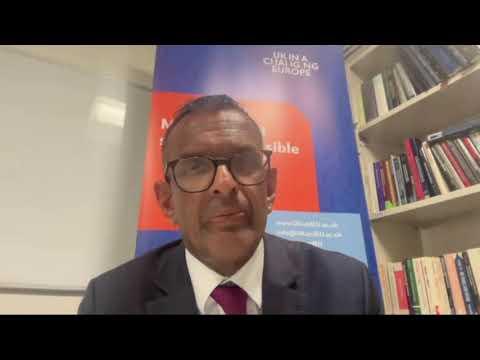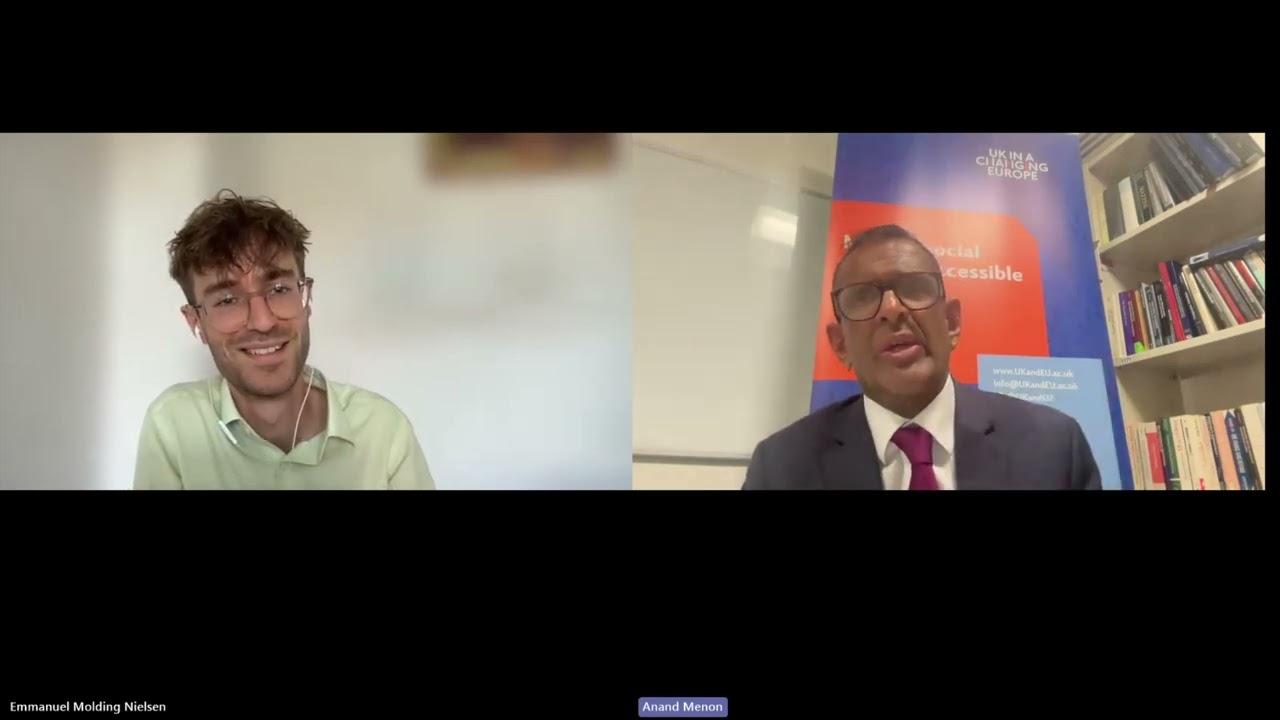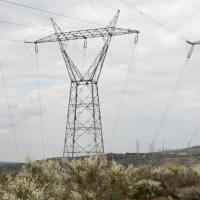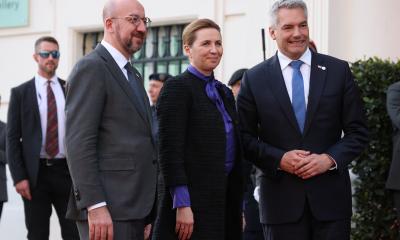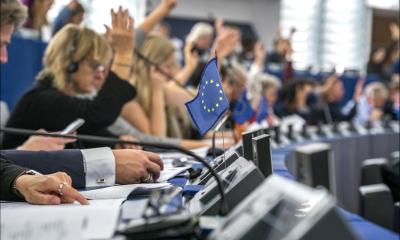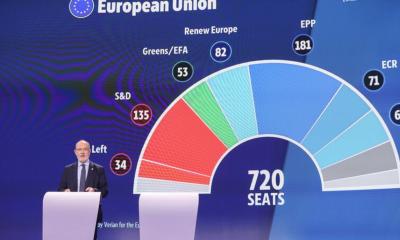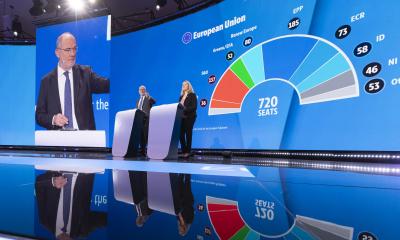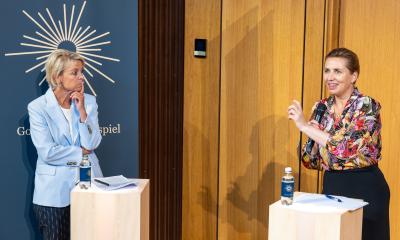High-Level Insights – WEBINAR: “UK general elections: a new beginning?”
On the 26th of June, Think Tank Europe invited Professor Anand Menon, Director of the UK In a Changing Europe Think Tank, to a webinar discussing the UK general election.
On the 26th of June, Think Tank Europe invited Professor Anand Menon, Director of the UK In a Changing Europe Think Tank, to a webinar discussing the UK general election and what an incoming Labour government might mean for the future of EU-UK relationship. This note summarises the high-level insights from the webinar.
Everyone is sick of talking about Brexit
While Brexit was a dominant concern in the 2019 elections campaign, in 2024, the main parties are reluctant to discuss the issue.
The Conservatives, Labour and the Liberal Democrats all have their own reasons for eschewing the topic. For the Conservatives, they have come to be associated with Brexit, which is increasingly discussed as a failure. Not because it was the wrong decision per se, but because the Conservatives are blamed for having botched it.
Meanwhile, Labour is targeting leave voters and is keen not the remind them that they primarily campaigned in favour of remaining. In addition, as a supporter of remaining in the EU and as former Shadow Brexit Minister, Brexit is seen as a particular liability for the Labour leader. Indeed, and perhaps most significantly, if Labour are already far ahead in the polls without talking about Brexit, why should they start bringing it up now?
The only party with an ambitious programme for the post-Brexit relationship is the Liberal Democrats – England’s 3rd party – who are advocating for membership of the single market on the path to one day rejoining. However, while this is a manifesto pledge for the party, it is not discussed during their campaigning. This is because they’re targeting affluent seats in the south-east of England, who have previously voted for Brexit, and because they are keen to avoid adopting a strategy reminiscent of 2019 campaign, where they were perceived as advocating too strongly for rejoining.
The British economy faces headwinds
Britain is facing a series of compounding challenges: crumbling public infrastructure and services, a historically high tax burden by British standards, rising debt interest payments, as well as chronically low growth and productivity.
Yet, both Labour and the Conservatives have tied themselves to a fiscal rule, which commits them to cutting debt as a percentage of GDP over a five-year period. This will necessitate either spending cuts, or tax rises, both of which have largely been rules out by both parties.
Labour hopes to square this fiscal circle by promising the political stability that the country has been so sorely lacking, but it’s far from clear that stability will be the silver bullet Labour is hoping for.
Labour faces uphill struggle to improve the EU relationship
The current relationship is politically warming, but economically thin. As things stand, Labour is not planning major improvements to the economic relationship. Instead, their current plans amount to tinkering at the edges of the current agreement. When it comes to the security relationship the EU, however, Labour have made this their no. 1 foreign policy priority.
Nevertheless, it’s by no means clear that Labour will be able to significantly upgrade the relationship, as they face several challenges. First, Labour assumes that the EU shares their interest in improving the relationship. However, since the 2016 elections when Brexit was perceived as an existential threat to the integrity EU, the EU’s priorities have since shifted.
Second, the Labour team may not appreciate just how difficult negotiations with the EU will be, as any agreement, such as on dynamic alignment with EU rules, will have to involve a formal agreement with EU oversight. Third, the EU is likely to approach serious negotiations over the relationship with a degree of trepidation, owing to the possibility of the return of a eurosceptic Conservative party, that could overturn any deal if they return to power.
Labour is hoping that a combination of goodwill, a change of tone from the British side, and a bit more ‘creative thinking’ from the EU will be enough to land a bespoke agreement on the future of the relationship. Indeed, by repackaging several challenges as ‘security concerns’, Labour is hoping to make renegotiating parts of the agreement easier for the EU to swallow. However, the EU has changed significantly since the UK left it has gone from been a very economically liberal bloc, to increasingly adopting the hallmarks of a more protectionist economic model. This new dynamic will make a more open model of collaboration, which the UK favours, more difficult.
Nevertheless, just as the EU’s insistence on the ‘indivisibility of the four freedoms’ is a political, rather than a legal claim, a more self-confident EU may be prepared to go further than in the past, when Brexit was still perceived as an existential threat to the union. Indeed, with the EU looking ahead to a new round of enlargement, this may also enable new forms of association with the EU.
Labour’s balancing act
If polls are to be believed, Labour is on track for a thumping majority. This is likely to significantly change the nature of Britain’s engagement with Europe, with a crop of new pro-European MPs likely to set a new pro-European tone. Indeed, considering the scale of the majority predicted by current polling, on Europe, Keir Starmer is likely to face pressure from within his party, rather than the opposition, as new Labour MPs are likely to push for stronger ties to Europe, than currently advocated by the Labour leadership. Navigating this new dynamic, will be a difficult balancing act for Keir Starmer, who will come under pressure from within his party to move further, faster, without losing sight of where the rest of the electorate stand on the issue of Brexit.
Watch the full webinar here:
Tænketanken EUROPA indtager ikke holdninger som organisation. Denne tekst repræsenterer alene – som alle udgivelser fra Tænketanken EUROPA – forfatterens/forfatternes betragtninger.
